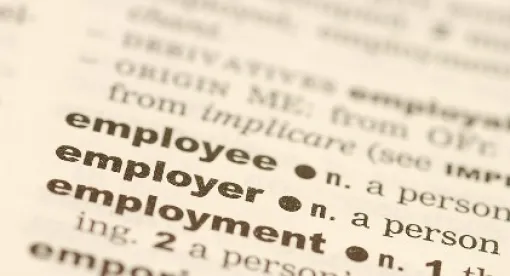Late last month the U.S. Equal Employment Opportunity Commission (EEOC) issued a statement by its Chair Jenny R. Yang, as well as two informational Question and Answer Guidance documents about discrimination against employees who are, or who are perceived to be Muslim or Middle Eastern. While the press release from EEOC may have been overlooked due to the holiday break, the guidance is worth reviewing now. EEOC issued this guidance because of the recent tragic events in the United States and abroad involving extremist terrorist groups who are widely perceived as Muslim and Middle Eastern. EEOC clearly wants to remind employers that discrimination based on country of origin, race, or religion violates Title VII of the Civil Rights Act of 1964. EEOC’s message to employers is that “Reactions in the workplace to world events demand increased efforts by employers to prevent discrimination.”
EEOC issued one guidance for employers and a separate guidance for employees. Both guidance documents present the same hypothetical scenarios, including accommodating prayer during the workday and harassment of employees who are Muslim or of Middle Eastern origin. One of the examples involves an Arab American employee complaining because a co-worker calls him names like “ISIS” and “terrorist.” The example doesn’t specify whether the name calling is hostile or more along the lines of joking, and the message from EEOC is clear that the company has a duty to investigate and take appropriate action to stop this behavior, regardless of the intent behind the name calling.
Another interesting example involves a Muslim employee named John expressing concern to his supervisor that a co-worker regularly seeks him out to discuss Islam, ISIS and terrorism. John feels that this situation may “escalate or spark religious hostility.” EEOC’s advice in this situation is for the supervisor to ensure the co-worker understands that John is uncomfortable with these discussions and therefore, the co-worker should be asked to stop initiating them. EEOC is clear that although an initial action may “not amount to illegal harassment, there are still steps an employer can take to prevent the conduct from escalating.”
Given that the workplace shooting in San Bernardino, California involved a Muslim employee whose family was originally from Pakistan, some employees may be fearful of, and hostile towards, co-workers they perceive as potentially susceptible to “radicalization.” Prudent employers should be pro-active in evaluating whether any of their employees may be experiencing overt or subtle harassment in the workplace due to their religion, national origin or ethnicity. This is a good time to re-publish your company’s harassment policy and remind employees that the company will not tolerate unwelcome, offensive behavior based on any protected characteristics.




 />i
/>i

